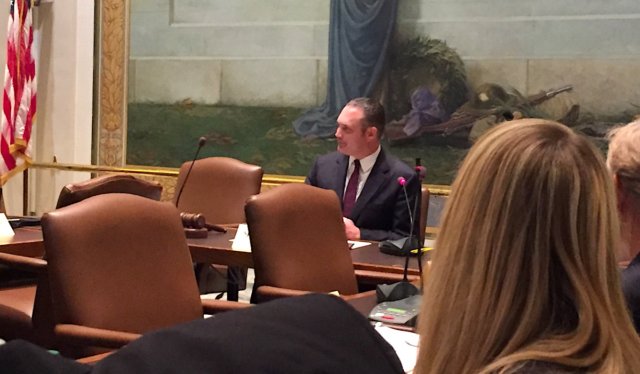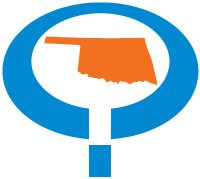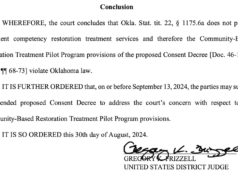
(Editor’s note: This story was authored by Trevor Brown of Oklahoma Watch and appears here in accordance with the non-profit journalism organization’s republishing terms.)
A small group of unelected citizens, all appointed by Republican state leaders, will soon be exercising significant powers to decide how the state’s top agencies spend their funding and which services they should provide.
Legislators and Gov. Mary Fallin added $2 million to the state budget this year to pay for state agency audits to be conducted by a private firm and overseen by a commission of Oklahoma business leaders.
Conservative lawmakers say this private-sector approach work will uncover waste, fraud and unnecessary spending that goes beyond agencies’ legislative or constitutional directives.
But the new funding has drawn critics from both Republicans and Democrats, who say the audits are expensive and are likely to reveal little beyond agencies’ need for more money to carry out their core missions.
A larger concern, they argue, is that the state is potentially politicizing the audits and giving a group of businessmen undue influence over how the state spends taxpayer dollars.
‘You can’t have predetermined outcomes’
The task of overseeing the audits falls to the newly formed, nine-member Agency Performance and Accountability Commission. The general concept of the group was spelled out in a bill approved by the Legislature and signed by Gov. Mary Fallin last year. Appointed by Fallin and GOP House and Senate leaders, the commission is in the process of hiring a firm that will conduct the first round of performance audits. Performance audits are designed look at how effective and efficient programs are.
Instead of just forwarding cost-saving recommendations to the audited agencies – the case with traditional audits – the law creating the commission says the agencies “shall implement the recommendations” unless otherwise directed by the Legislature.
That gives the group more powers than those of other private-led commissions that the Legislature created in the past. For example, the Incentive Evaluation Commission, charged with making recommendations on many business tax breaks, only had an advisory role and could not instruct agencies on what to cut or keep.
Rep. David Perryman (D-Chickasha) said he believes this is an attempt by lawmakers to circumvent the Legislature and agency directors who control spending decisions, with the goal of cutting budgets and shrinking government.
“Theoretically, under Oklahoma law, when an agency head is hired, they’re supposed to have expertise in wherever they are serving,” Perryman said. “So we are basically taking away their ability to function in their own areas of expertise and, instead, having this group come in and dictate that something needs to be done a certain way.”
Perryman said because just three Republicans – Fallin, Senate Pro Tempore Mike Schulz (R-Altus) and House Speaker Charles McCall, (R-Atoka) – had any say in selecting the members, he questions how objective and non-partisan the commission will be. The commission could “conceal” findings that might not coincide with the views of those leaders, giving political cover to cut budgets or reduce services, he said.
State Auditor and Inspector Gary Jones, a Republican who is running for governor, said he’s also concerned.
A request for proposal, which set out the scope of work for companies that wanted to bid, is proof that the audits won’t be independent or meet the standards his office must meet, he said.
Instead of honestly evaluating whether an agency is performing correctly, needs more money or can cut costs, the document specifically requires the firm to identify cost-cutting moves.
Among other things, the request says the firm “will be expected to explore savings” by identifying areas where the level of service exceeds what is necessary, or by consolidating agencies and privatizing services.
Jones said it’s improper for such a request to require the auditor to assume that costs need to be cut.
“You can’t have pre-determined outcomes,” he said.
Jones said his office was invited to bid on the audits or recommend who should do the audits. But he declined because he didn’t believe the request for proposal would allow him to perform a truly independent audit.
“We didn’t want any of our fingerprints on this,” he said.
He said concerns over politicizing the process would have been moot had Fallin not vetoed a bill in 2013 to create the Joint Legislative Committee on Accountability.
Jones said his office would likely be able to perform the audit more cheaply than a private firm could. The state auditor’s office does not make a profit, and would be better qualified than a company that may not even be located in Oklahoma, he said.
‘A very private sector approach ‘
Republican leaders have defended the commission and expressed confidence in its members, who are volunteering without pay.
At the commission’s first meeting in December, McCall called the effort a “fresh look” and said taking a “very private-sector approach” can be more productive than a traditional government audit.
“The vision for this commission is not to just look at financial matters – those are currently reviewed,” he said. “But this will look at the processes agencies use, the programs they are involved in and their structure and other various things.”
Schulz added, “There never can be too much oversight” when it comes to deciding how taxpayers’ dollars are spent.
In a recent email to Oklahoma Watch, Schulz said, “It’s not surprising that Capitol insiders would reject the infusion of common sense and business acumen (the commission) will undoubtedly bring. Legislators, agency directors and taxpayers should expect (the commission) to provide actionable ideas and best practices that will ensure more efficient delivery of government services and expenditure of taxpayer dollars.”
Bob Sullivan, who heads the Tulsa-based oil and gas firm Sullivan and Company, is among those on the accountability commission. He also said commission members will bring a fresh perspective. The language requiring agencies to follow the recommendations is necessary because it gives “teeth” to their work.
“It makes me feel better that we are going to be spending time on something that has some chance of being implemented here,” he said.
Outlook for audits
The company that wins the bid to do the audits will face tight deadlines. A preliminary report is due Sept. 28, and a final one is due Dec. 31.
Only a small number of agencies will get a look this year. The commission is to audit the 20 largest state agencies on a rotating basis, but the $2 million in funding for fiscal year 2019 will only go so far.
The request for proposal, issued well before the 2019 budget was approved, says agencies that could be audited in the first year are the Oklahoma Tax Commission, Office of Management and Enterprise Services, the Department of Corrections, the Department of Public Safety, the District Attorneys Council and the Office of Juvenile Affairs.
The commission planned to meet May 9 to discuss its next steps and review proposals from five bidders. It also was expected to discuss when the Department of Education would be audited and how to pay for it.
But the meeting was called off when the group was told that its notice didn’t comply with the state Open Meeting Act. Another meeting will be scheduled.
The commission is required to publish its final report and a follow-up report online. The reports track whether agencies are following audit recommendations.
Agency Performance and Accountability Commission
Appointed by Gov. Mary Fallin
-James Adcock, board of directors of Unit Corp. and trustee of the Don Bodard Trust
-Jeff Hutson, internal audit manager at First Fidelity Bank
-Bob Sullivan, head of the Tulsa-based oil and gas company, Sullivan and Company
Appointed by House Speaker Charles McCall:
-Douglas Beall, radiologist at the Clinical Radiology of Oklahoma
-TC Burgin, certified public accountant, founder of T.C. Burgin
-Tom Richards, managing director at Triton Value Partners
Appointed by Senate Pro Tempore Mike Schulz:
-Bob Anderson, former Oklahoma Tax Commissioner
-Jay Cowart, manager of the Oklahoma Cotton Cooperative Association
-John O’Connor, attorney from Tulsa






















